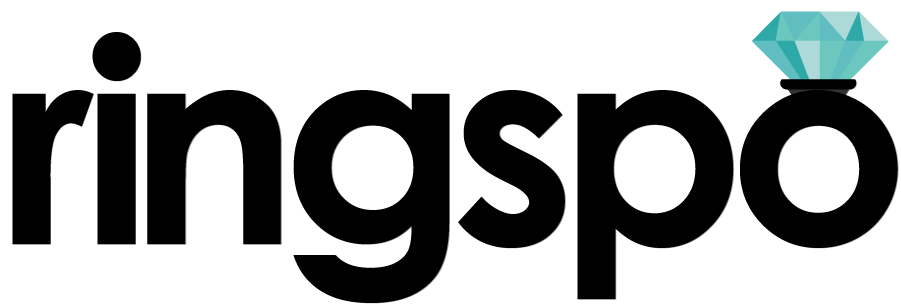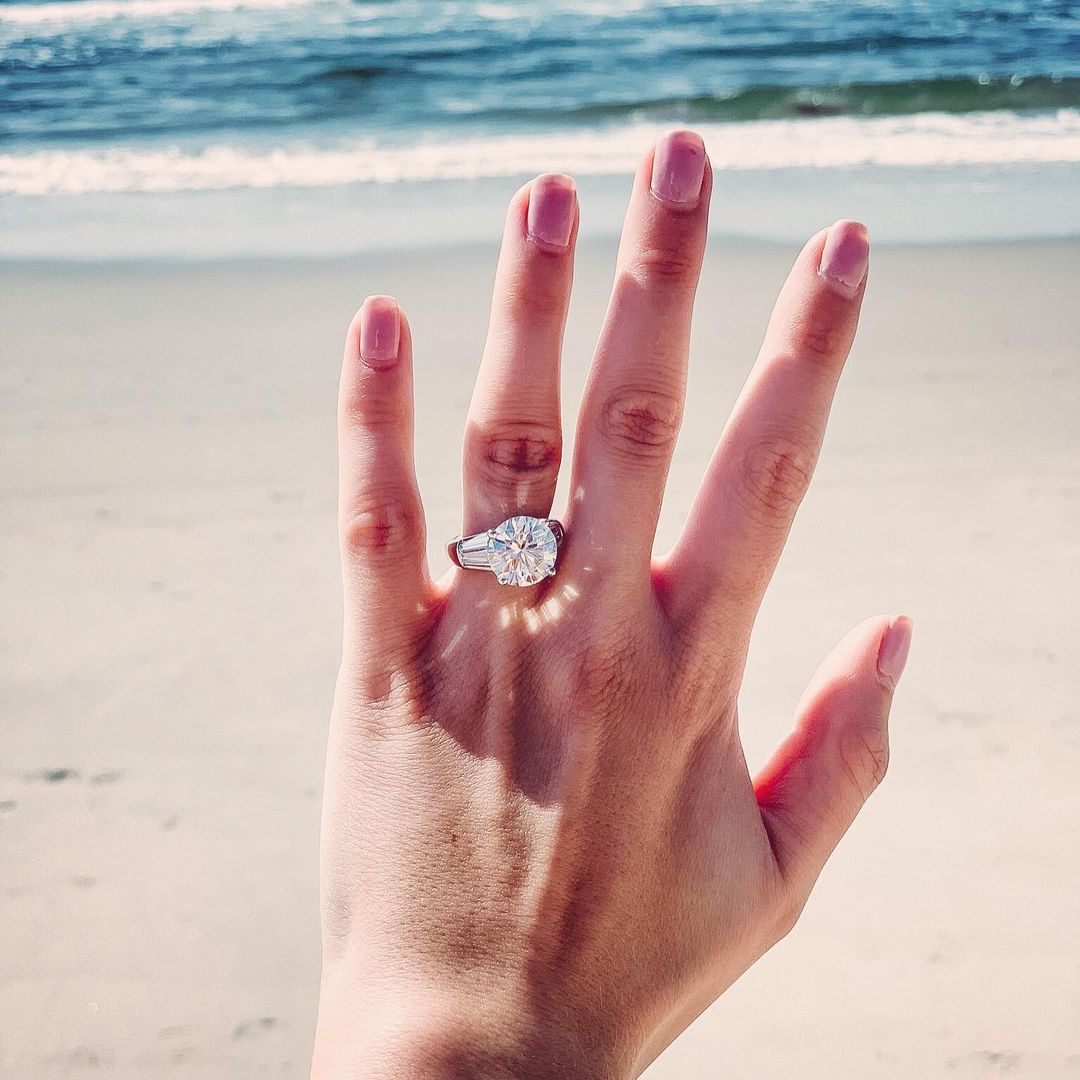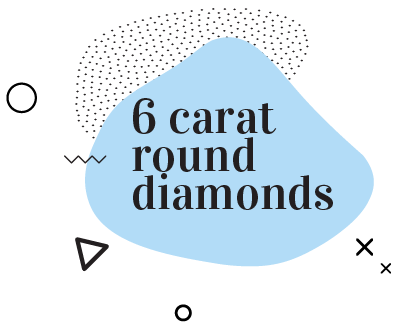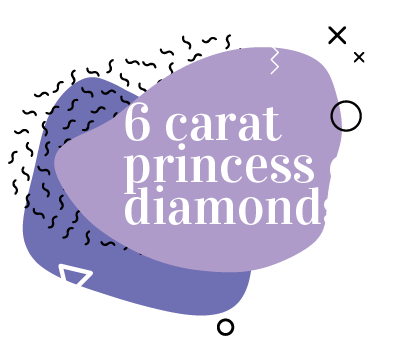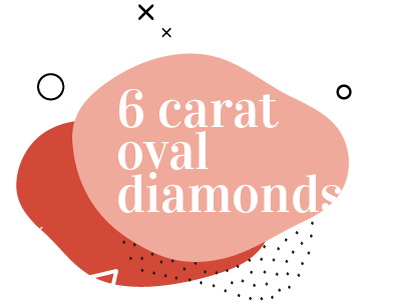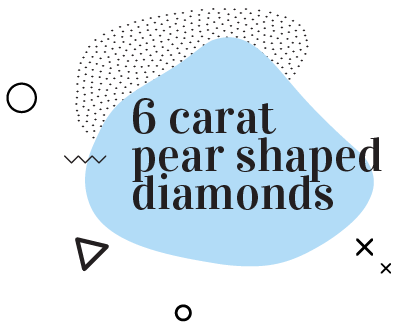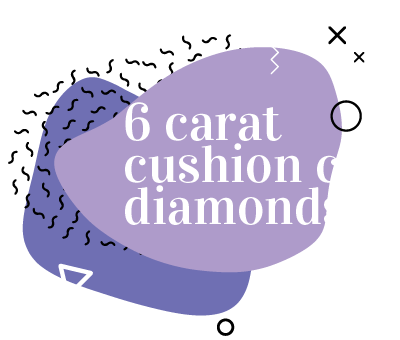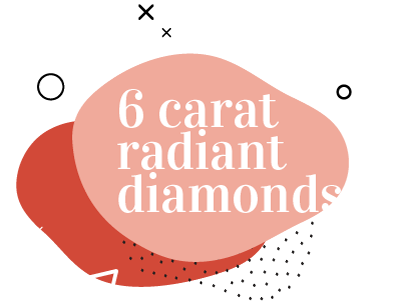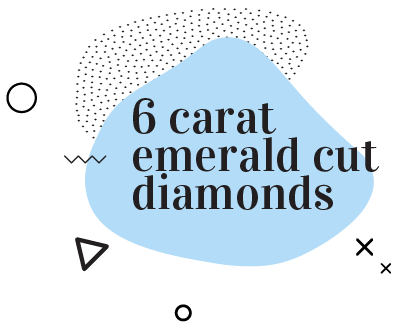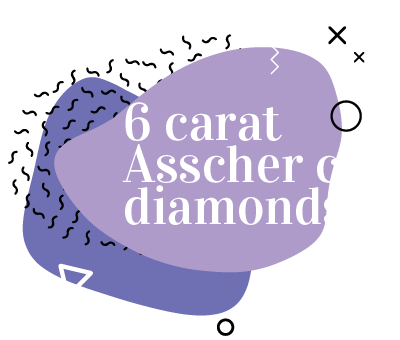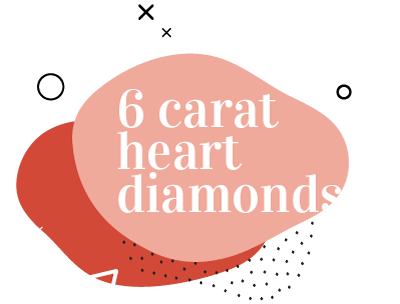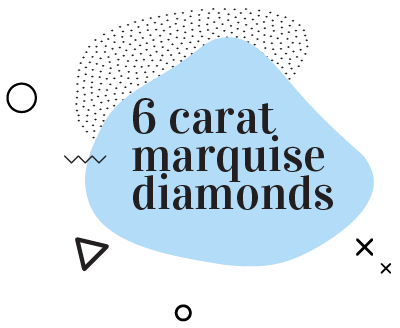6 Carat Diamond Ring
A 6 carat diamond is a significant statement, but getting it right can be tricky.
Unlike smaller carat weights, there are far fewer diamonds to choose from. This means you need to be more selective than ever with your decision to ensure you get a great diamond.
It can also mean that personal service can be beneficial, to ensure that you don’t choose a diamond that looks great online, but doesn’t actually look great when worn.
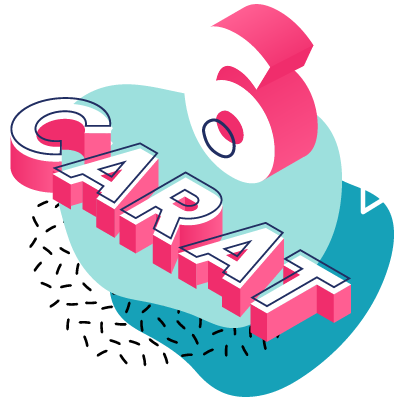
Key takeaway:
There are many factors that affect price and value of a 6 carat diamond.
Due to the high cost of these diamonds and the variation in size, shape and beauty that can be present in two diamonds with the same carat weight, we strongly recommend that you work with a specialist in significantly-sized diamonds, who can guide you through the process and ensure you get the most beautiful diamond and pay a fair price.
Our recommendation for this is Alon at The Diamond Oak, a third generation diamond dealer who puts a huge emphasis on personalised service and finding the right stone for each person.
Why working with a diamond specialist makes sense for such a significant investment
While smaller diamonds may be virtually interchangeable, at this carat weight there can be a significant different between two diamonds that look similar on paper.
Their specs may be similar but they are worth very different values.
A diamond specialist will take the time to understand what you are looking for, present several options (often sourced through personal connections and otherwise inaccessible) and guide you towards the diamond which is the absolute best fit for you.
6 carat diamond price
As a broad range, the cost of a 6 carat diamond can vary from $33,000 to $439,000:
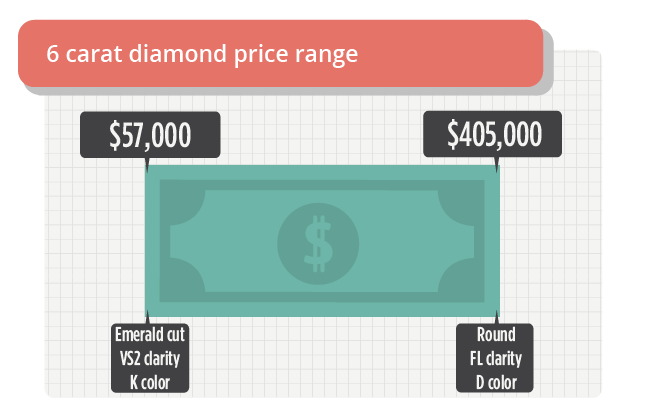
To understand how much a 6 carat round cut diamond costs, we conducted research across three online diamond aggregation services which collectively have over 1,000,000 diamonds available to choose from, and then checked this against the most widely-accepted list of wholesale diamond prices.
$33,000 to $439,000 is a huge range, with the shape of diamond you choose, the color, clarity and the ‘make’ (how well the diamond has been cut) all contributing to decide the final price.
One of the things that will have the most significant effect on the price of a 6 carat diamond is the shape you choose.
The table below shows prices for 6 carat diamonds with the following specs:
- Cut (where appropriate): excellent
- Clarity: VS2
- Color H
The prices for each of the diamond shapes are ranked in order from most expensive to least:
| Cut | Price | Difference ($) | Difference (%) |
|---|
Four carat diamond shapes ranked by price:
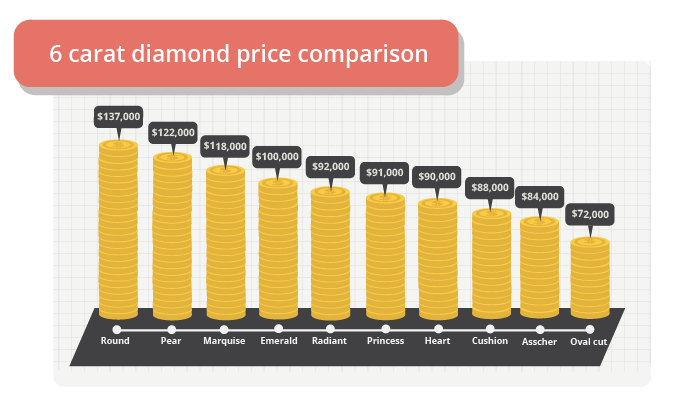
These prices are just guides, but should be a good guide to understand the relative pricing of the different shapes.
One thing to note is that less common shapes have fewer diamonds available at any one time, so an ‘average’ price is hard to define.
This is especially true of shapes like the marquise or heart-shaped diamonds, where there aren’t many stones available. If you’re looking for one of these diamonds, you may find that the price differs from those listed above, depending on what is available at that time.
6 carat diamond size
One important thing to understand when you are looking at 6 carat diamonds is that carat weight is a measure of weight rather than size.
An increase in carat weight is therefore spread out throughout the volume of the stone – both the width (which you can see) and the depth (which you can’t see).
This may sound unimportant, but in fact can make a huge difference to how big your 6 carat diamond actually looks.
Firstly, if we look a the difference between a 3, 4 and 6 carat round diamonds then you can see that while the difference in size between a 3 and a 4 carat, or a 5 and a 7 carat, is visible, it isn’t necessarily huge:
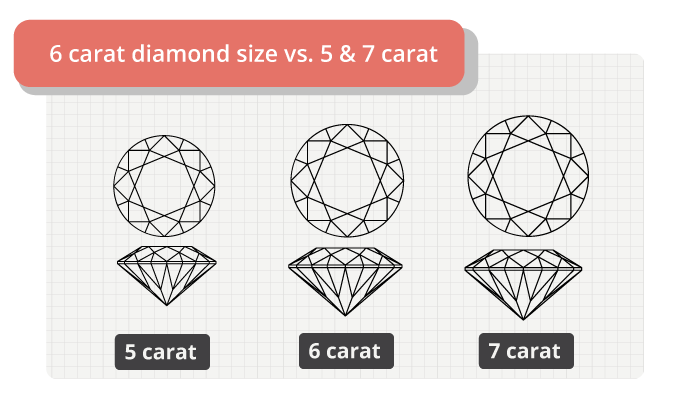
A lot of the extra carat weight of the diamonds is included in the greater depth.
If you are looking at a round brilliant diamond, then there is minimal variation in the size between different stones. They are all cut to similar proportions which are optimised to reflect light off the bottom surfaces and back to your eyes.
Diamonds that are cut deeper, like an Asscher cut, will hide more of their carat weight in the bottom of the stone, where it can’t be seen. Shallower, or elongated cuts like an oval or emerald cut, will have greater ‘spread’ and look larger.
For some non-round shapes, like oval and emerald cuts, the variation in size can be significant.
The table below shows the average size for 6 carat diamonds in different shapes.
| cut | Dimensions (mm) | Surface area (mm²) | Difference | Difference % |
|---|
As with the price, you can see that there can be a significant difference between the different shapes of 6 carat diamonds.
Just looking at these figures makes it difficult to understand the actual difference, so the image below shows the difference in size between different diamond shapes:
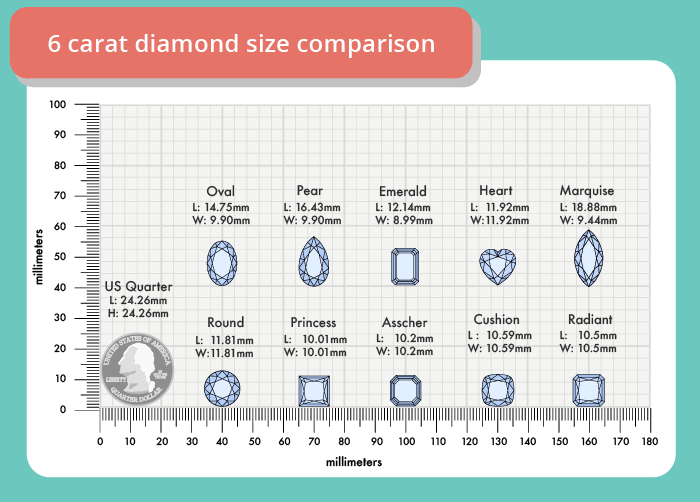
Again, it’s important to remember that these are just average sizes and for non-round shapes, there can be significant variation in the size the diamonds appear.
If you are considering a specific shape, click through on the shape’s name in the table to learn more about it.
6 carat diamonds on the finger
A big factor on what will look good at this carat weight is how it fits with the wearer’s hand size and finger shape.
Elongated cuts will make a finger look longer and leaner, but at higher carat weights, an overly long stone can overpower a hand.
For example, a shorter 6 carat emerald cut diamond often looks better on the hand than a longer shape like a marquise.
To get an idea of what 6 carat diamonds actually look like, we’ve included a selection of the most common shapes below:
6 carat round diamond ring on the finger:
Four carat round diamonds are the widest of the common shapes, which means the diamond can actually appear larger than other, more elongated shapes.
It can be a good idea to try on a 6 carat round diamond to see whether it looks good on the hand of the wearer.
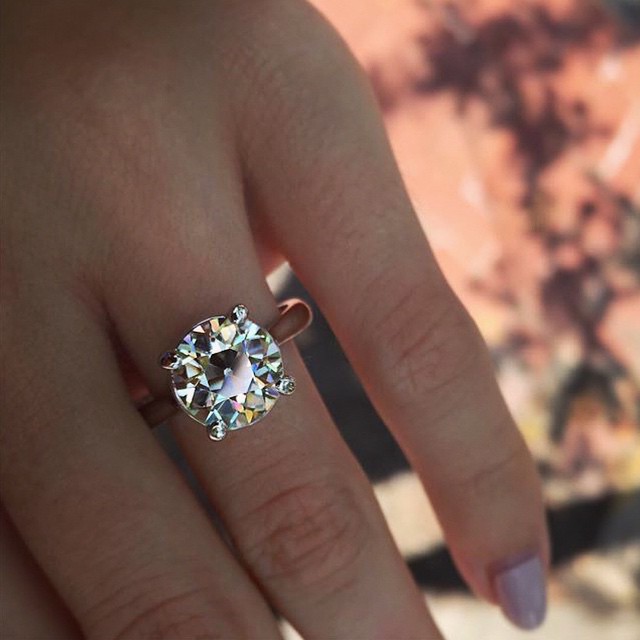
6 carat cushion diamond ring on the finger:
Cushion cuts are slightly less wide than rounds as some of the carat weight is used in the squarer corners of the diamond. For this reason, they look a little smaller on the hand:
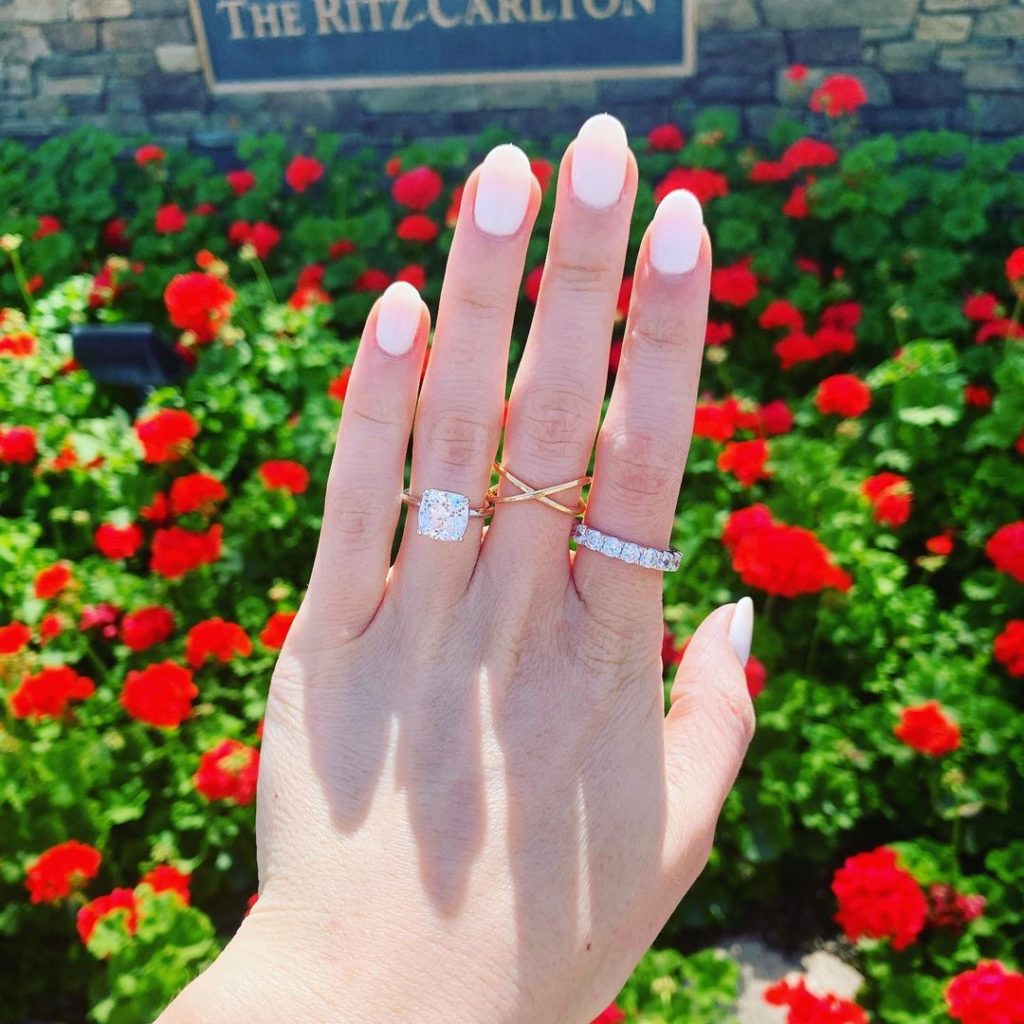
6 carat emerald cut diamond ring on the finger:
While emerald shapes can vary, depending on the L/W ratio, the narrower width of emerald cuts definitely suits higher carat weights, where the stone doesn’t overwhelm the finger and the longer length looks more elegant.
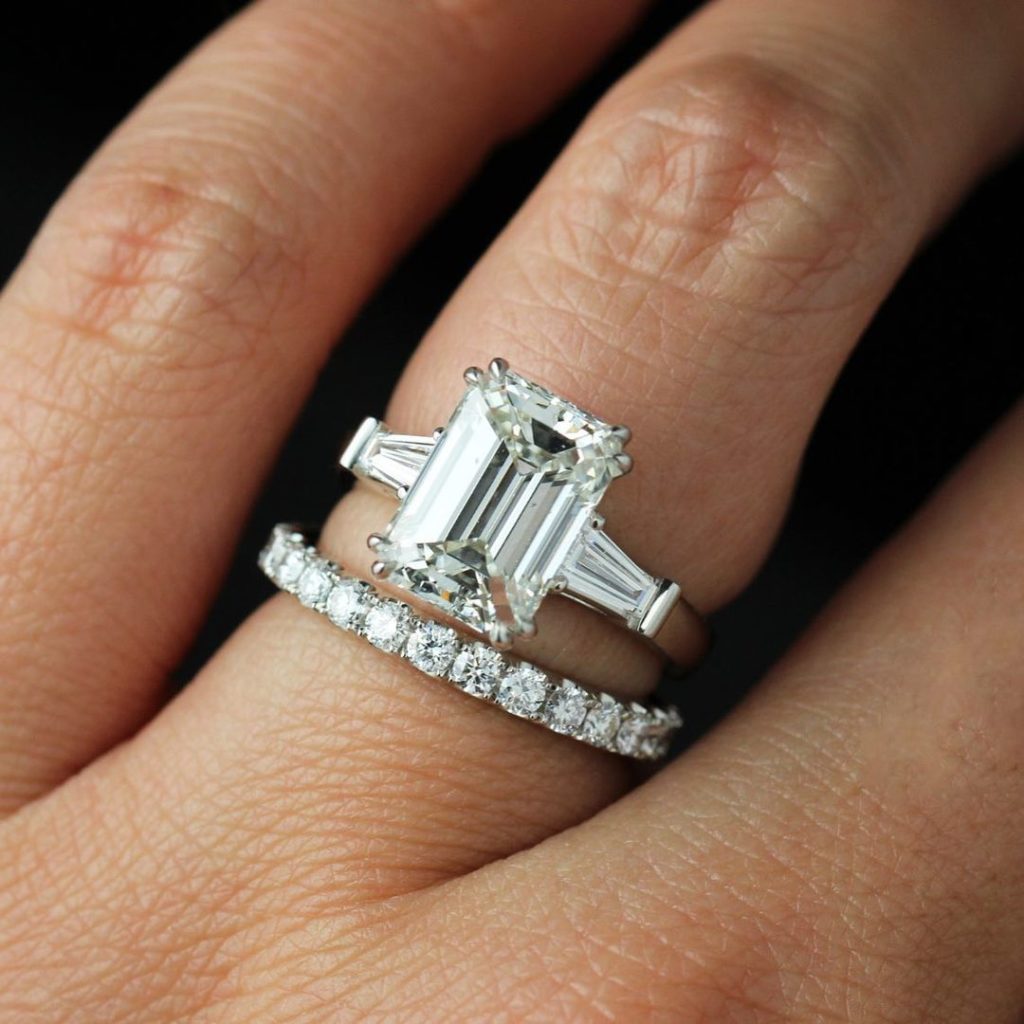
6 carat oval diamond ring:
As oval diamonds are basically elongated round diamonds, they are narrower and longer than rounds, which again can be flattering to the finger at higher carat weights, without being overwhelming:
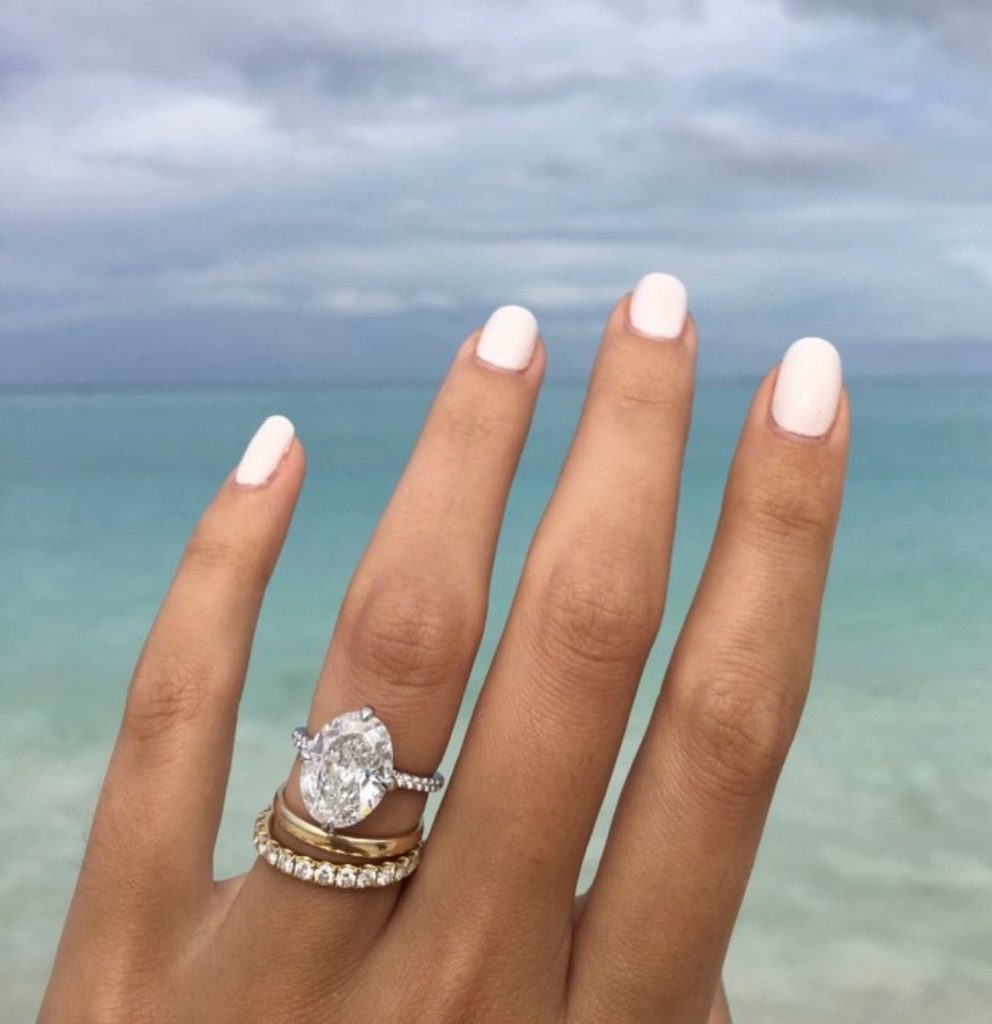
6 carat diamond shape popularity and availability
There are 10 common shapes of diamonds, but not each are equally popular.
At weights under 3 carats, round brilliant diamonds are by far the most popular. They deliver the most sparkle and there are the most diamonds to choose from, so you can take your time to find an exceptional stone.
However, when the carat weight increases, other shapes become more popular as they look more elegant at larger sizes.
Emerald cuts, cushions and ovals are more popular than round diamonds at 6 carats, although 6 carat round diamonds still look beautiful.
In general, square shapes like the princess cut and Asscher cut are less popular. This means that there are fewer produced and fewer to choose from.
Less commonly chosen shapes like the marquise and heart can be very difficult to find at higher carat weights and you may need to work with a specialist to find a diamond for you that fits what you are looking for.
6 carat diamond color
As you likely know, diamond color is graded on a GIA-developed scale from D to Z, with most diamonds used for rings sitting in the colorless, very light or near colorless grades:

Larger diamonds tend to show up color more easily than smaller stones, especially diamonds that have areas that sparkle less, like the ends of ovals or the corners of cushions or emerald cut diamonds.
If you want to ensure your diamond doesn’t have a yellow tint, it’s important therefore to try and keep the color as high up the scale as possible.
On the other side of the equation is the effect color has on price, and the difference that changing the color just one grade can be significant.
Even though they are both just increasing one color grade, increasing color from I to H will result in a more significant increase than going from H to G.
For most 6 carat diamonds though, if you’re choosing a white colored ring setting (platinum or white gold), I color is a good blend between being white enough so that it doesn’t look yellow, but also not paying more than you need to.
If you are choosing a yellow gold setting, then you can usually go down to K color without yellow tones being visible.
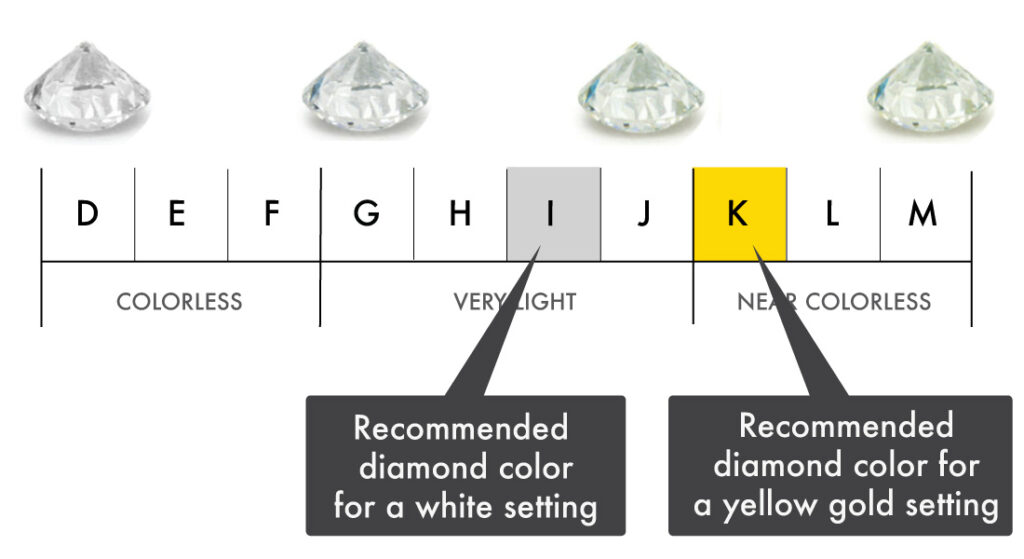
6 carat diamond clarity
Clarity is a measure of the presence of inclusions (or flaws) within a diamond.
The clarity scale runs from ‘flawless’ at the top to ‘Included’ at the bottom, where flaws are very easy to see with the naked eye:

With smaller diamonds, it’s possible to find SI1 or SI2 clarity stones where the diamond’s beauty isn’t negatively impacted by the clarity.
With 6 carat diamonds, it’s more difficult to find SI1 clarity diamonds that don’t have an inclusions that negatively affects the beauty of the stone – they are more likely to have a crystal flaw that is visible or a cloud flaw that reduces the amount of light that is transferred and therefore the sparkle.
However, they are out there, and I recommend that you begin your search by looking for SI1 clarity diamonds.

Depending on what is available at the time you are looking, you may not find a suitable SI1, so may need to increase the clarity.
One thing to know is that increasing clarity from SI1 to VS2 will have a much larger effect on the price than going from VS1 to VS2 as you are crossing into the area where most diamonds will be ‘eye clean’.
Lastly, the shape of the diamond can also affect the clarity that is needed.
Shapes with a particularly large top table like the emerald cut or oval may even mean that you need to consider a VS1 clarity diamond to ensure that there are no flaws visible.
6 carat diamond cut
For round diamonds, cut is the factor that determines how much the diamond sparkles, and therefore is one of the most important factors when choosing a stone.
At 6 carats, I still recommend that you place a significant priority on diamond cut and aim ‘excellent’ or ‘ideal’ to ensure it sparkles brilliantly.

Other diamond shapes aren’t awarded a cut grade in the same way as round diamonds, which can make them more difficult to buy. But the way they have been shaped is just as important.
In the diamond trade, this is known as the ‘make’ and ensuring your diamond has a good make is extremely important.
Issues that are less significant at smaller carat weights are amplified – an oval diamond’s bow tie is more obvious in a 6 carat oval diamond than a 2 carat oval diamond, for example:
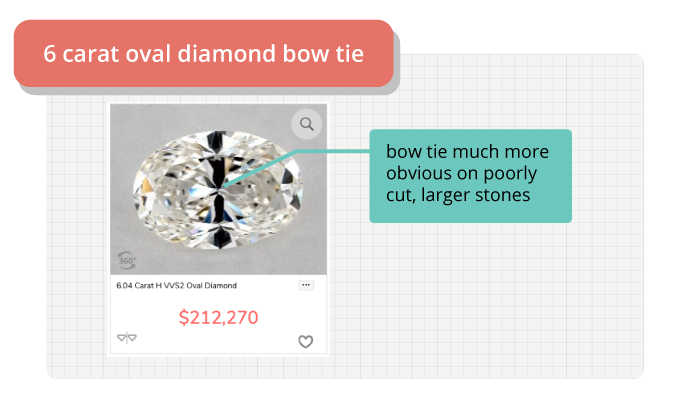
This is where working with a personalised service to guide you through the diamond selection process can be beneficial – they can ensure you stay clear of any common pitfalls.
6 carat ring setting styles
Higher carat weight rings mean that additional considerations can be needed to be taken into account, depending on the ring setting style chosen.
6 carat solitaire settings
Solitaire settings are a great match for 6 carat diamonds because they allow the stone to display its maximum brilliance.
A major trend with settings at the moment is super slim and petite bands and prongs, which are effective in making the stone itself look larger.
While these can look great, some care does need to be taken with higher carat weights, as an extremely narrow band may not be wide enough to support the stone. It may twist on the finger and become uncomfortable.
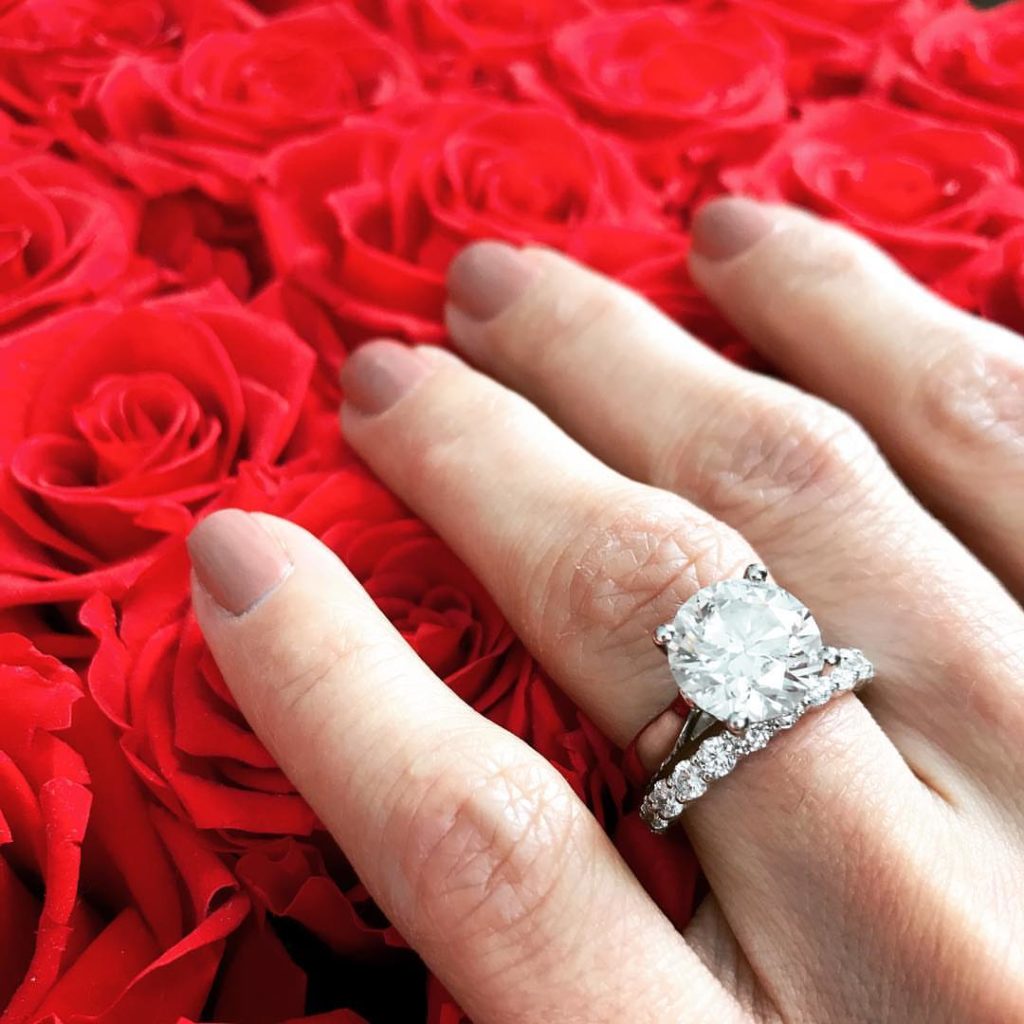
If you’re choosing a solitaire setting for your 6 carat ring, we recommend you choose a band of at least 2.5mm.
A band that is wider underneath, but tapers towards the diamond itself (as shown) can be a good way to maximise comfort, while still giving the impression of a slim band.
6 carat pave settings
An important consideration with pave settings, channel settings or any diamonds with side stones, is to ensure that the colors of the side stones are a close match to the center stone.
It doesn’t need to be exactly the same, but if the side stones are too many grades higher than the center stone, the difference in color will make the center stone look more yellow.
If you are buying an off the shelf pave setting, the side stones are often G-H color, and in this case an I colour center stone would likely look more yellow next to the G colour side stones.
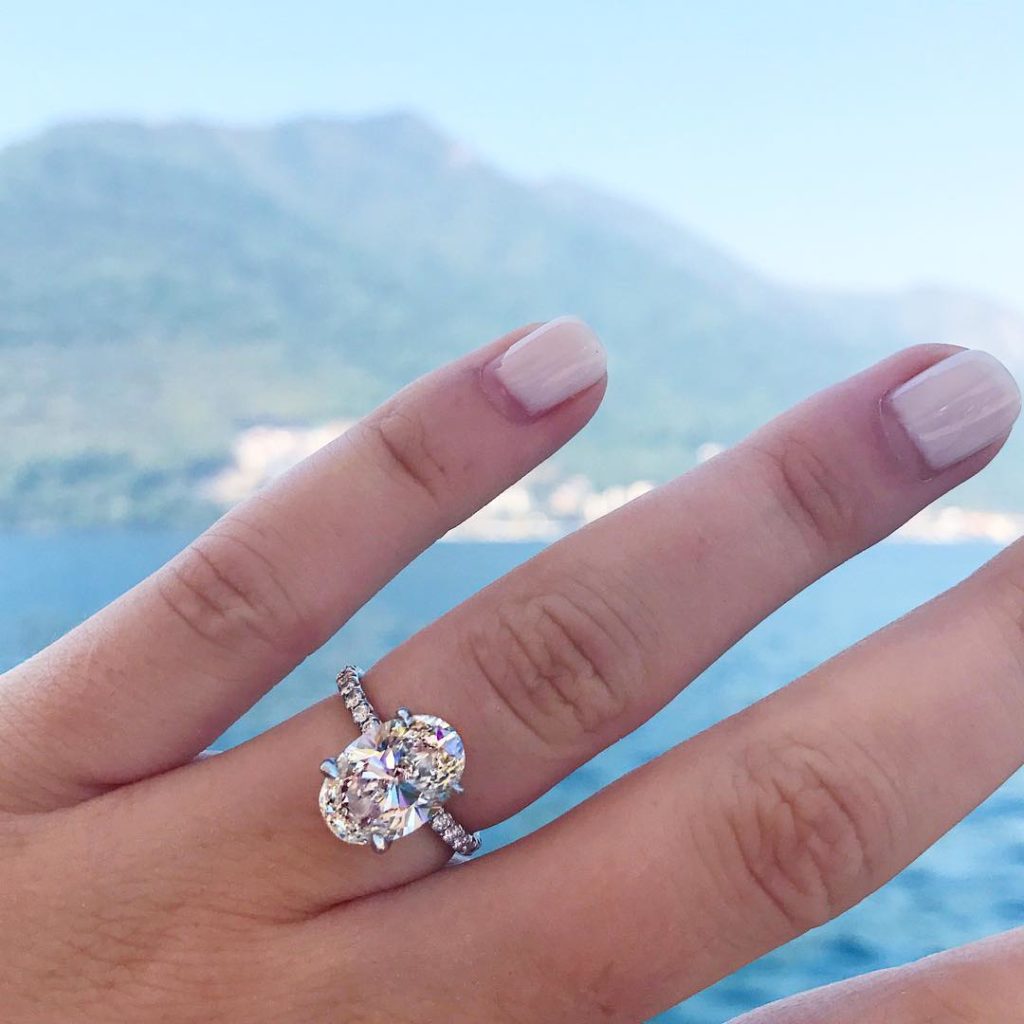
If you can, try and keep side stones within 1 colour grade of the center stone.
6 carat halo settings
As with pave settings, it’s important to ensure with 6 carat halo rings that the side stones match the center stone for color.
Another consideration is just how large the ring will be with a halo added.
Halos are great for smaller carat weights because the make the ring look larger and more impressive. With a 6 carat diamond, this isn’t so necessary, so if you are considering a 6 carat halo, it’s a good idea to try one on to ensure that it doesn’t look too overwhelming on the finger.
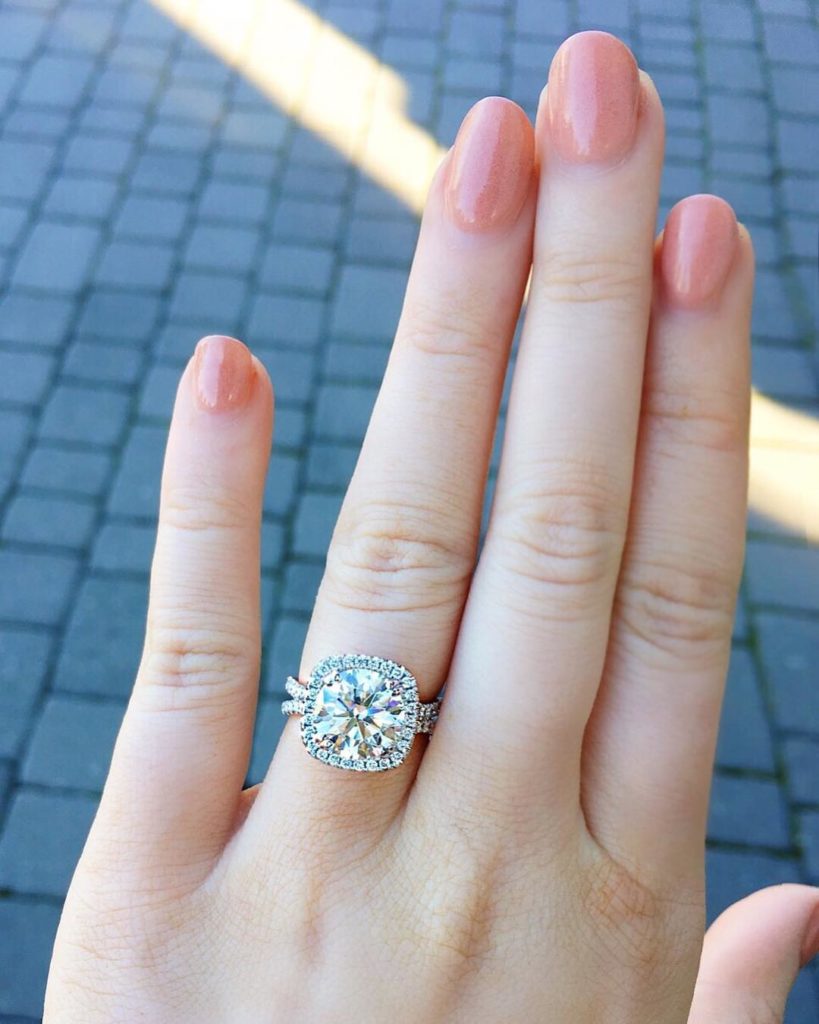
Best Place To Buy a 6 Carat Diamond Ring
For smaller diamonds, I usually recommend buying online as retailers present hundreds of thousands of diamonds and make it easy to choose exactly what you are looking for.
However, As previously mentioned buying a diamond of this size diamond is very different to buying a smaller stone – both in the expense involved and in the potential for pitfalls.
My recommendation is to find a diamond dealer that you can trust to guide you through this process. You may be able to source a personal recommendation, or my recommendation is Alon Mor at The Diamond Oak.
Why I recommend Alon at The Diamond Oak
I’ve worked with Alon for over five years, helping people who are looking to buy significant diamonds, as well as those who are selling high quality jewelry.
Through that time, I have seen the exceptional service that Alon delivers to each and every client he works with.
I like this review – it sums up how special working with someone who truly cares can be.
If you are seriously considering making a purchase and want to ensure you get a beautiful diamond at a fair price, I recommend you book in a discovery call with Alon:
